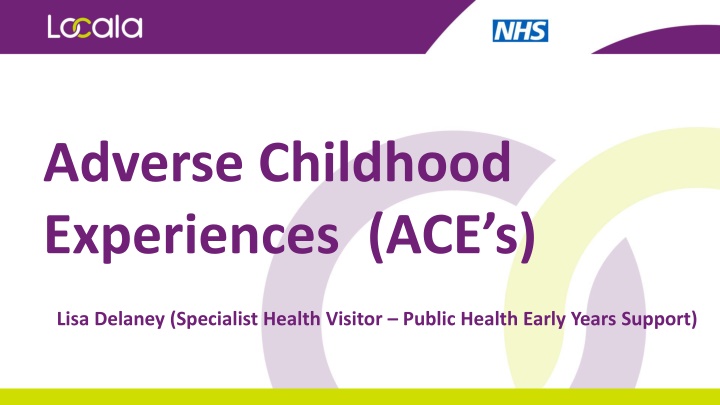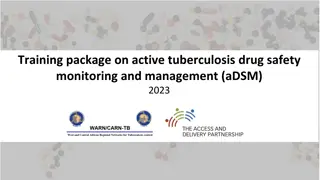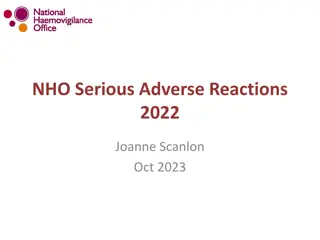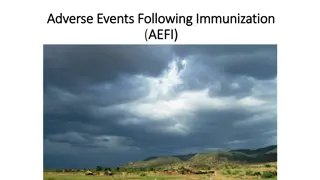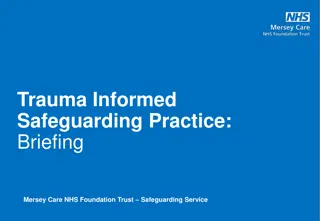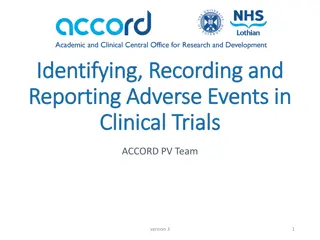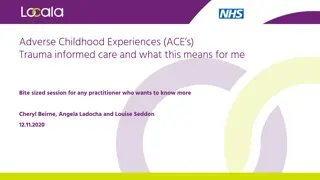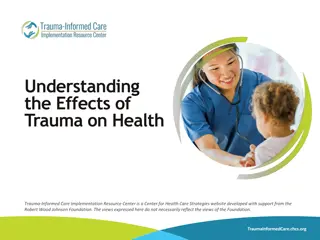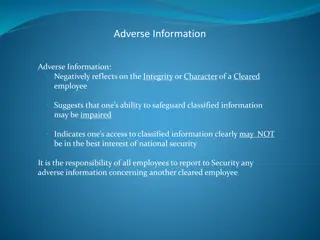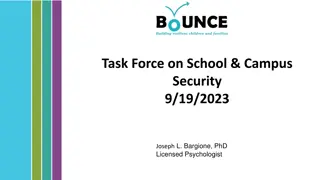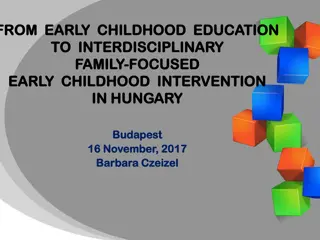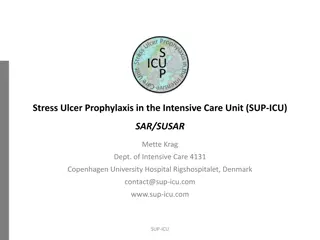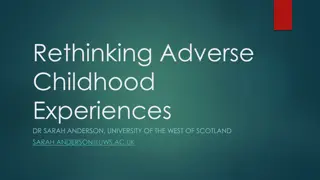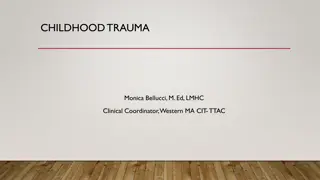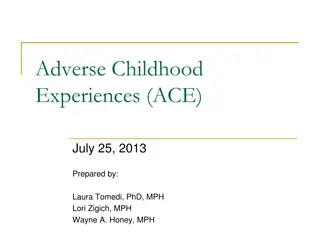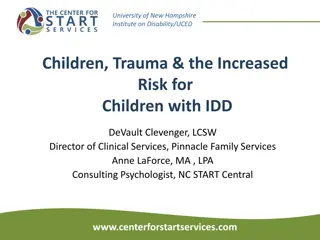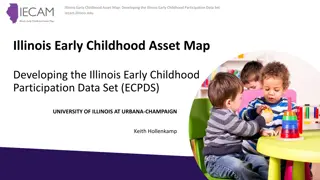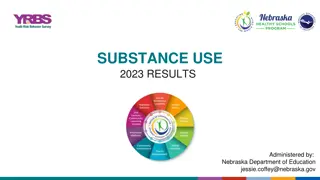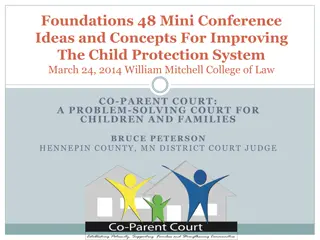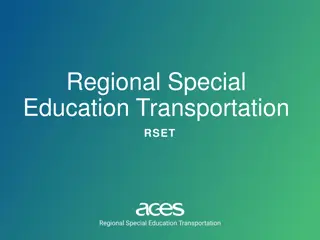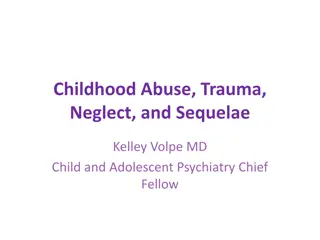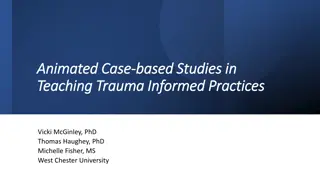Impact of Adverse Childhood Experiences (ACEs) on Individuals and Society
Adverse Childhood Experiences (ACEs) encompass a wide range of traumatic events during childhood that can have long-lasting effects on individuals. These experiences, such as abuse, neglect, and family issues, can significantly increase the risk of developing harmful behaviors and health conditions later in life. Research shows a direct correlation between the number of ACEs and negative outcomes, including substance abuse, mental health issues, and physical illnesses. Addressing ACEs is crucial to prevent societal impacts and improve overall well-being.
Download Presentation

Please find below an Image/Link to download the presentation.
The content on the website is provided AS IS for your information and personal use only. It may not be sold, licensed, or shared on other websites without obtaining consent from the author.If you encounter any issues during the download, it is possible that the publisher has removed the file from their server.
You are allowed to download the files provided on this website for personal or commercial use, subject to the condition that they are used lawfully. All files are the property of their respective owners.
The content on the website is provided AS IS for your information and personal use only. It may not be sold, licensed, or shared on other websites without obtaining consent from the author.
E N D
Presentation Transcript
Adverse Childhood Experiences (ACE s) Lisa Delaney (Specialist Health Visitor Public Health Early Years Support)
Definition: Stressful events occurring during childhood that directly affect a child (e.g. child maltreatment), or affect the environment in which they live(e.g. domestic abuse within the home). Bellis et al 2014
ACEs describe a wide range of stressful or traumatic experiences that may occur as the child is growing up; Domestic Abuse Physical abuse Drugs and /or alcohol abuse Emotional abuse Familial mental health issues Sexual abuse Loss due to bereavement Neglect Incarceration of a family member Loss due to separation or divorce of parents
.What is done to children they will do to society .. .What is done to children they will do to society .. Dr Karl Menninger 15 million yearly average cost 15 million yearly average cost
For every 100 adults in the UK: 48 have experienced x1 ACE 9 have experienced 4 or more ACEs
ACEs increase an individuals risk of developing health-harming behaviours Compared with people with no ACEs, those with 4+ACEs are: 2x more likely to currently binge drink and have a poor diet 3x more likely to be a current smoker 5x more likely to have had sex whilst under aged 16 yrs 6x more likely to have had or caused an unplanned teenage pregnancy 7x more likely to have been involved in violence in the last year 11x more likely to have used heroin/crack or been incarcerated
4 or more ACEs 2.5x increased risk of acquiring a sexually transmitted infection 6 or more ACEs 46x increased risk of IV drug use 35x increased risk of suicide 5x increased risk of illicit drug use At risk of their lifespan being shortened by 20 years 7 or more ACEs 7x increased risk of alcohol addiction 12x increased risk of attempted suicide 2.5x increased risk of COPD X3 risk of lung cancer 2.5x increased risk of Hep B X3.5 risk of ischaemic heart disease 4x risk of depression
The previous slide is very busy. The important information to take away is that experiencing trauma in childhood (ACE s) affects every system of the body and every aspect of a child life. These affects are life long and potentially life shortening. It highlights the need to ensure information about a child's early experiences is communicated to new professionals as a child transitions through agencies (ie health to nursery to school to extra curricular activities)
It needs to be remembered that not every child who experiences ACE s will be adversely affected. It is not a done deal Thorough assessments and recording of information for individual children and families may lead to a greater understanding of why some children appear to have more resilience than others. In turn this can help shape future service delivery.
Preventing ACEs in future generations could reduce levels of: Preventing ACEs in future generations could reduce levels of: Early sex by 33% Heroin/crack use by 59% Unintended teen pregnancy by 38% Violence victimisation by 51% Smoking by 16% Violence perpetration by 52 % Binge drinking by 15% Incarceration by 53% Cannabis use by 33% Poor diet by 14%
Next Steps Within Calderdale Health Visiting (PHEYS) and School Nursing services we are looking at how we assess and record this information for each individual child/young person. In order to support individuals and improve outcomes ,it is hoped that this work will continuously evolve, forming the foundation blocks for partnership working looking at: a)existing services we can utilise b) gaps in service that need to be developed
What can you do ? Start having conversation with colleagues Look within your own organisation at how this information may be recorded and shared Look for opportunities to really make a difference through partnership working Look for those cases where expectations have been surpassed, these may provide valuable information into individual resilience and future service development
..Adverse Childhood experiences are the single greatest unaddressed public health threat facing our country Adverse Childhood experiences are the single greatest unaddressed public health threat facing our country Dr Robert Block
References: https://www.youtube.com/watch?v=W-8jTTIsJ7Q https://youtu.be/XHgLYI9KZ-A https://www.youtube.com/watch?v=95ovIJ3dsNk Collingwood S, Knox A, Fowler H, Harding S, Irwin S, and QuinneyS. The Little Book of Adverse Childhood Experiences. Imagination Lancaster, University of Lancaster 2018 Bellis MA, Hughes K, Leckenby N, Perkins C, Lowey H. National household survey of adverse childhood experiences and their relationship to health harming behaviours in England. BMC Medicine 2014, 12:72 https://academic.oup.com/jpubhealth/article/36/1/81/1571104 Felitti, V. J., Anda, R. F., Nordenberg, D., Williamson, D. F., Spitz, A. M., Edwards, V., et al. (1998). Relationship of childhood abuse and household dysfunction to many of the leading causes of death in adults: The Adverse Childhood Experiences (ACE) Study. American journal of preventive medicine, 14(4), 245-258 https://www.70-30.org.uk/ References:
